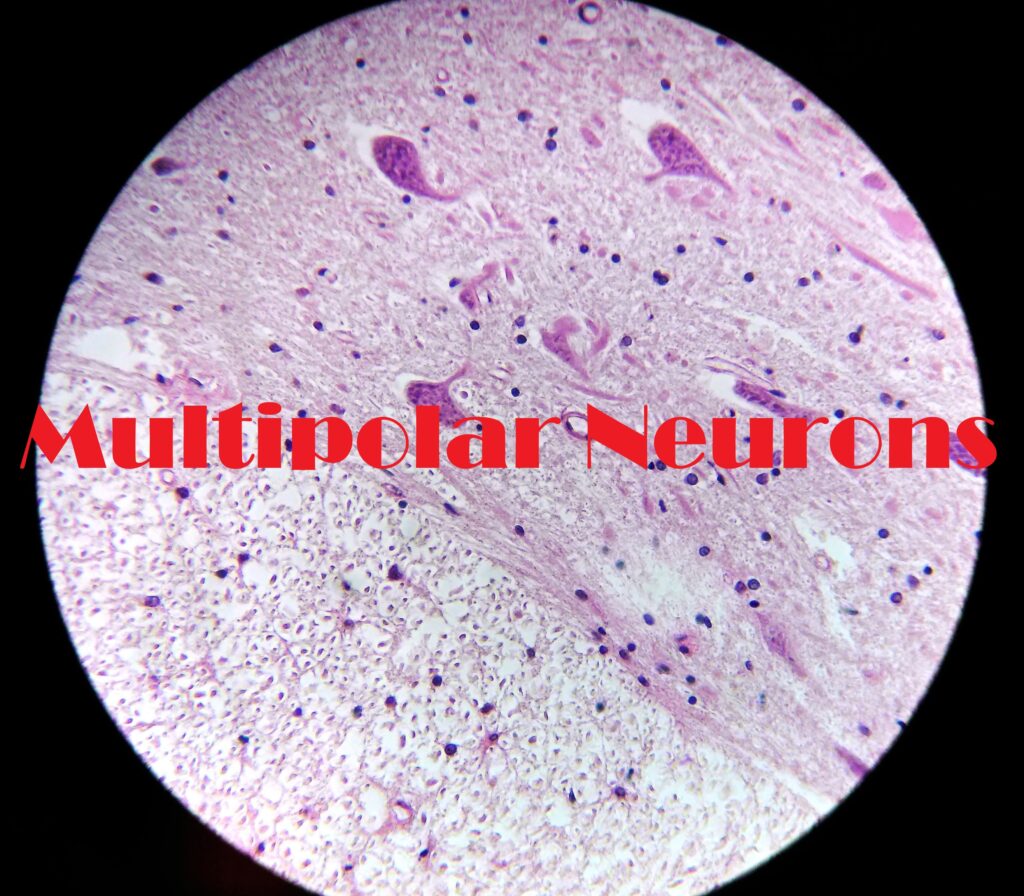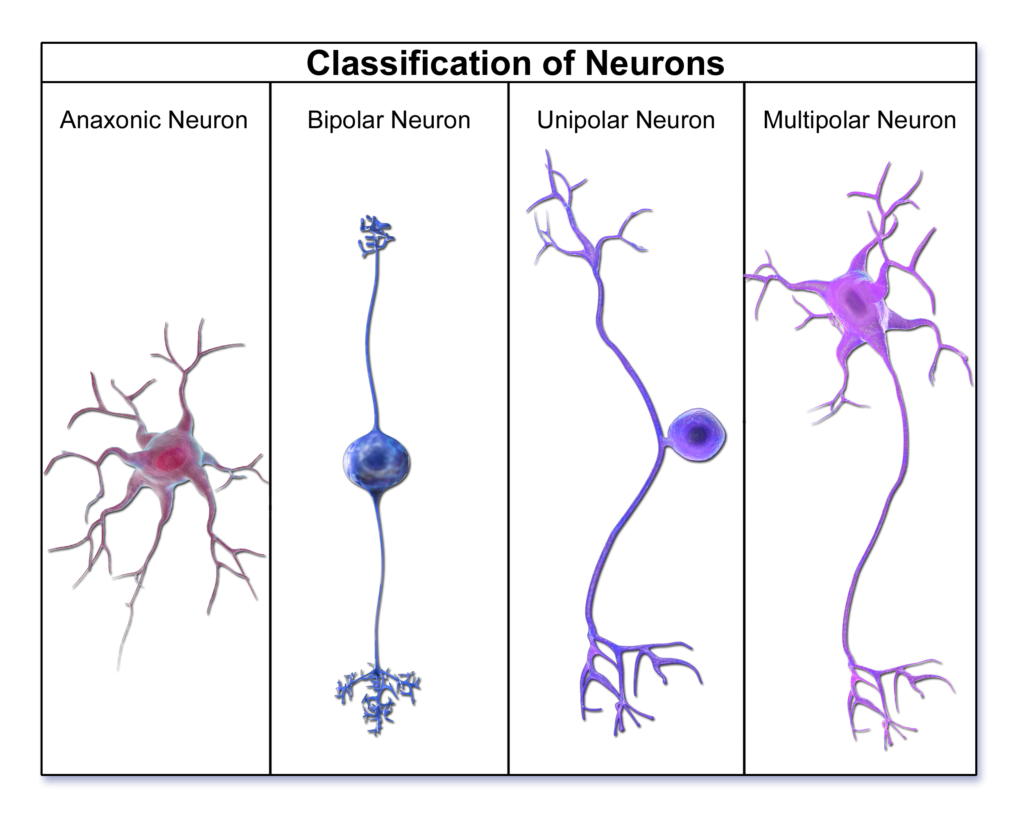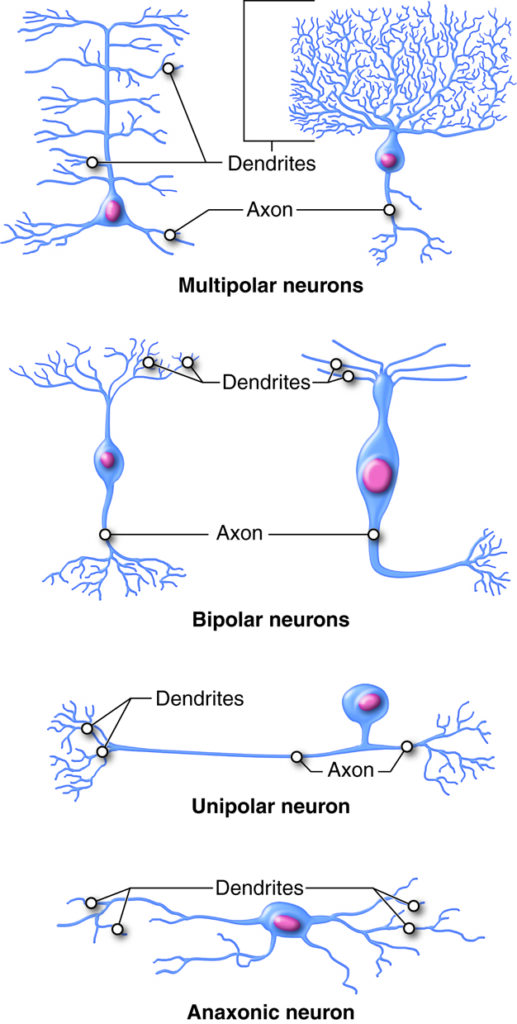Multipolar Neurons: Understanding the Brain’s Powerhouses
Enter the interesting field of multipolar neurons! Delicate cells are the foundation of our nervous system, coordinating the complex impulses that allow us to think, feel, and act. This blog article will discuss the complexities of multipolar neurons, examining their structure, function, and importance in influencing our cognitive experiences.

Understanding Neurons:
First, let’s make sure we understand the basic principles of multipolar neurons. Neurons are the basic units of the nervous system, transmitting chemical and electrical impulses throughout our body. Specialized cells of different shapes and sizes are designed to perform different functions.
Structure of Multipolar Neurons:
As the name suggests, multipolar neurons are defined by the presence of multiple processes or extensions extending from the cell body. In this process, dendrites play an important role in receiving incoming signals, while axons carry the signals to other neurons or effector cells. A hallmark of multipolar neurons is their complex and highly branched architecture, which allows them to integrate and process enormous amounts of data.

Function of Multipolar Neurons:
Neurons with multiple poles are important for transmitting and processing information in the nervous system. Tracing the complex connections of dendrites and axons, neurons gather input from many other neurons, process the information, and produce output signals that travel to subsequent destinations. Essentially, multipolar neurons function as the central hub of our nervous system, directing the integration of sensory perception, motor control, and cognitive functions.
Significance in Neural Circuits:
Understanding the complex web of multipolar neurons is critical to understanding the functionality of neural circuits, which are complex networks of neurons cooperating to accomplish specialized tasks. In these circuits, multipolar neurons act as both receivers and transmitters of signals, enabling the flow of information to different areas of the brain. This complex interaction allows us to analyze sensory input, form memories, and perform complex actions.

Role in Brain Function:
The brain, with its vast network of neurons and complex synaptic connections, is a remarkable feat of engineering. At the heart of this complex system are multipolar neurons, which support a wide range of functions essential to our cognitive abilities. Multipolar neurons play important roles in a variety of brain functions, from basic reflexes to complex cognitive processes that influence our perceptions, emotions, and behaviors.
Conclusion:
Ultimately, multipolar neurons are the pinnacle of neural complexity, playing a vital role in our nervous system. With their complex structure and diverse functions, these incredible cells allow us to navigate the complexities of our internal and external environments. Through the study of multipolar neurons, we can uncover profound insights into the core of brain function and human nature. Don’t forget to acknowledge the significant role that multipolar neurons play the next time you are in awe of the mind’s complexity.
Table of Contents
Why are motor neurons multipolar?
Motor neurons are multipolar because of the need for complex integration of information from multiple sources for precise coordination and regulation of muscle actions. Motor neurons use a multipolar shape to take input from various sources via dendrites and effectively send messages to muscle fibers via axons, facilitating complex motor control and precise movement coordination.
Where are multipolar neurons located?
Multipolar neurons are found primarily in the central nervous system (CNS), that is, in areas such as the brain and spinal cord. They are abundant in areas that handle sensory information processing, motor control, and advanced cognitive functions. Multipolar neurons are present in specialized elements of the peripheral nervous system (PNS) such as ganglia, where they help regulate autonomic functions and sensory processing outside the central nervous system (CNS).
Related –
What is the difference between unipolar, bipolar, and multipolar neurons?